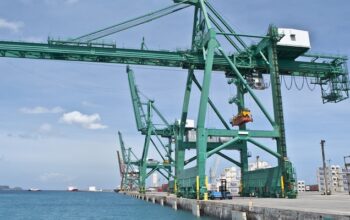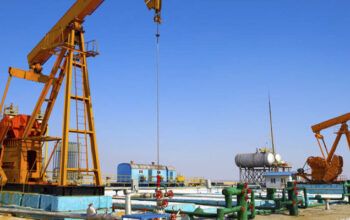Hisham Ezz Al-Arab, Chairperson of the Commercial International Bank of Egypt (CIB), announced that the bank has been actively financing various new and renewable energy projects in Egypt.
The bank aims to help achieve the target of 30% renewable energy by 2030, focusing on electricity generation from solar and wind sources.
Ezz Al-Arab also mentioned that other countries, like Kenya and Tanzania, are incorporating geothermal e
nergy into their energy mix.
The total financing volume provided by CIB in the field of renewable energy and waste management amounts to an impressive $300 million.
Ezz Al-Arab made these statements during his participation in the “Climate Risk Mitigation: The Role of Financial Institutions” symposium, held on the sidelines of Wall Street events in Kenya.
CIB’s participation in the symposium aligns with the guiding principles of the bank’s strategy and objectives towards the environment and climate change.
It reflects the bank’s commitment to sustainable financing practices, based on its firm belief in the importance of providing sustainable and innovative solutions to reduce the negative effects of climate change.
During the symposium, Ezz Al-Arab spoke about the role of financial institutions in reducing harmful emissions and addressing the negative impacts of climate change.
He noted that Africa’s emissions do not exceed 5% of the Earth’s total emissions; however, African countries still endure the lion’s share of the consequences, including floods, droughts, and other phenomena that affect the lives of African people.
Ezz Al-Arab highlighted the sustainability policies that CIB has implemented to reach target environmental performance by adopting paper recycling initiatives and saving water and electricity. Additionally, the bank has moved to a new building in Smart Village, the first building that supports green transformation in Egypt.
He also pointed out that environmental risks are integral to CIB’s risk model, similar to market risks, credit risks, and cyber risks.
The bank has made major efforts to change its strategies and policies, resulting in the Sustainability Committee becoming one of its key committees.
Regarding the biggest obstacle facing financial institutions, Ezz Al-Arab identified capital as a significant challenge, especially given the size of Africa and the investment needed to address floods, rising sea levels, and drought.
Transforming the African economy to adapt to green energy and water recycling also requires substantial investment.
Ezz Al-Arab emphasized that Africa needs help in preventing disasters rather than just funding. “We must work together, hand in hand, to prevent disasters,” he said.
He also noted that regulatory authorities in the United States have begun the first round of climate risk assessments, enlisting the help of the 10 largest banks to evaluate these risks.
Consequently, CIB has secured several deals with major financial institutions, including the International Finance Corporation (IFC) and the European Bank for Reconstruction and Development (EBRD).
![]()




